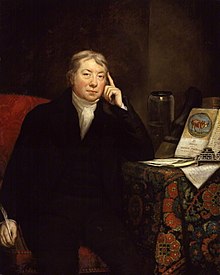January 26 is the 26th day of the year in the Gregorian calendar. There are 339 days remaining until the end of the year (340 in leap years).
Holidays
- Australia Day (Australia)
- Christian Feast Day:
- Duarte Day (Dominican Republic)
- Liberation Day (Uganda)
- Republic Day (India)
History
In 661, The Rashidun Caliphate is effectively ended with the assassination of Ali, the last caliph.
In 1340, King Edward III of England is declared King of France.

In 1500, Vicente Yáñez Pinzón becomes the first European to set foot on Brazil.
In 1531, Lisbon, Portugal is hit by an earthquake–thousands die.
In 1564, The Council of Trent issues its conclusions in the Tridentinum, establishing a distinction between Roman Catholicism and Protestantism.
In 1564, The Grand Duchy of Lithuania defeats the Tsardom of Russia in the Battle of Ula during the Livonian War.
In 1565, Battle of Talikota, fought between the Vijayanagara Empire and the Islamic sultanates of the Deccan, leads to the subjugation, and eventual destruction of the last Hindu kingdom in India, and the consolidation of Islamic rule over much of the Indian subcontinent.
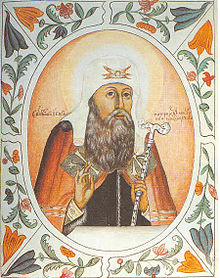
In 1589, Job is elected as Patriarch of Moscow and All Rus’.
In 1699, Treaty of Karlowitz is signed.
In 1700, The magnitude 9 Cascadia Earthquake takes place off the west coast of the North America, as evidenced by Japanese records.
In 1736, Stanislaus I of Poland abdicates his throne.
In 1788, The British First Fleet, led by Arthur Phillip, sails into Port Jackson (Sydney Harbour) to establish Sydney, the first permanent European settlement on the continent. Commemorated as Australia Day
In 1808, Rum Rebellion, the only successful (albeit short-lived) armed takeover of the government in Australia.
In 1823, Edward Jenner, English physician (b. 1749) died. He was an English physician and scientist from Berkeley, Gloucestershire, who was the pioneer of smallpox vaccine. He is often called “the father of immunology”, and his work is said to have “saved more lives than the work of any other man”.
In 1837, Michigan is admitted as the 26th U.S. state.
In 1838, Tennessee enacts the first prohibition law in the United States
In 1841, The United Kingdom formally occupies Hong Kong, which China later formally cedes.
In 1855, Point No Point Treaty is signed in Washington Territory.
In 1856, First Battle of Seattle. Marines from the USS Decatur drive off American Indian attackers after all day battle with settlers.
In 1861, American Civil War: The state of Louisiana secedes from the Union.
In 1863, American Civil War: General Ambrose Burnside is relieved of command of the Army of the Potomac after the disastrous Fredericksburg campaign. He is replaced by Joseph Hooker.
In 1863, American Civil War: Governor of Massachusetts John Albion Andrew receives permission from Secretary of War to raise a militia organization for men of African descent.
In 1870, American Civil War: Virginia rejoins the Union.
In 1881, Walter Krueger (26 January 1881 – 20 August 1967) was born. He was an American soldier who commanded the Sixth United States Army in the South West Pacific Area during World War II, rising from private to general in his army career. A child immigrant born in Flatow, West Prussia, he served in the Spanish–American War and the Philippine–American War and was promoted to second lieutenant in 1901. When the U.S. entered World War I in 1917, he was assigned to the 84th Infantry Division as assistant chief of staff, later as chief of staff. In October 1918, he commanded the Tank Corps. Between the wars, he served in various roles, and in 1941 he assumed command of the Third Army. In 1943 he was sent to the South West Pacific Area as commander of the Sixth Army, which he led in a series of victorious campaigns against the Japanese. In the Battle of Luzon in 1945 he was finally able to maneuver his army as he had in 1941 against a Japanese army under Tomoyuki Yamashita.
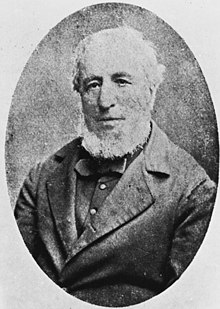
In 1885, Edward Davy, English-Australian physician and engineer (b. 1806) dies. He was an English physician, scientist, and inventor who played a prominent role in the development of telegraphy, and invented an electric relay. Davy was born in Ottery St Mary, Devonshire, England, son of Thomas Davy (medical practitioner and house surgeon at Guy’s Hospital, London). Edward Davy was educated at a school run by his maternal uncle in Tower Street, London. He was then apprenticed to Dr C. Wheeler, house surgeon at St Bartholomew’s Hospital. Davy won the prize for botany in 1825, was licensed by the Worshipful Society of Apothecaries in 1828 and the Royal College of Surgeons in 1829. Soon after graduating, Davy began trading as an operative chemist under the name of Davy & Co. In 1836 he published a small book Experimental Guide to Chemistry, at the end of which was a catalogue of goods supplied by his firm. Davy published Outline of a New Plan of Telegraphic Communication in 1836 and carried out telegraphic experiments the following year. He demonstrated the operation of the telegraph over a mile of wire in Regent’s Park. In 1837 he demonstrated a working model of the telegraph in Exeter Hall. He was granted a patent for his telegraph in 1838. However, he was soon obliged to drop his investigations of telegraphy for personal reasons. His patent was purchased by the Electric Telegraph Company in 1847 for £600. Davy also invented an electric relay. He used a magnetic needle which dipped into a mercury contact when an electric current passed through the surrounding coil. In recognition of this he was elected in 1885 as an honorary member of the Society of Telegraph Engineers and was informed of this by telegraph shortly before his death.
In 1885, Troops loyal to The Mahdi conquer Khartoum, killing the Governor-General Charles George Gordon.
In 1886, David Rice Atchison, American general and politician (b. 1807) died. He was a mid-19th century Democratic United States Senator from Missouri. He served as President pro tempore of the United States Senate for six years. He is best known for the claim that for one day (March 4, 1849) he may have been Acting President of the United States.
In 1891, Nikolaus Otto, German engineer, invented the Internal combustion engine (b. 1833) died. He was the German inventor of the first internal-combustion engine to efficiently burn fuel directly in a piston chamber. Though the concept of four strokes, with the vital compression of the mixture before ignition, had been invented and patented in 1861 by Alphonse Beau de Rochas, Otto was the first to make it practical.
In 1905, The world’s largest diamond ever, the Cullinan weighing 3,106.75 carats (0.621350 kg), is found at the Premier Mine near Pretoria in South Africa.
In 1907, The Short Magazine Lee-Enfield Mk III is officially introduced into British Military Service, and remains the second oldest military rifle still in official use.
In 1911, Glenn H. Curtiss flies the first successful American seaplane.
In 1911, Richard Strauss‘ opera Der Rosenkavalier receives its debut performance at the Dresden State Opera.
In 1915, The Rocky Mountain National Park is established by an act of the U.S. Congress.
In 1918, Finnish Civil War: A group of Red Guards hangs a red lantern atop the tower of Helsinki Workers’ Hall to symbolically mark the start of the war.
In 1920, Former Ford Motor Company executive Henry Leland launches the Lincoln Motor Company which he later sold to his former employer.
In 1924, Saint Petersburg, Russia, is renamed Leningrad.
In 1930, The Indian National Congress declares 26 January as Independence Day or as the day for Poorna Swaraj (“Complete Independence”) which occurred 17 years later.

In 1932, William Wrigley, Jr., American businessman, founded the Wrigley Company (b. 1861) died. He was a U.S. chewing gum industrialist. He was founder and eponym of the Wm. Wrigley Jr. Company in 1891. He was born in Philadelphia, Pennsylvania.
In 1934, The Apollo Theater reopens in Harlem, New York City.
In 1934, German–Polish Non-Aggression Pact is signed.
In 1939, Spanish Civil War – Catalonia Offensive: Troops loyal to nationalist General Francisco Franco and aided by Italy take Barcelona.
In 1942, World War II: The first United States forces arrive in Europe landing in Northern Ireland.
In 1945, World War II: The Red Army begins encircling the German Fourth Army near Heiligenbeil in East Prussia, which will end in destruction of the 4th Army two months later.
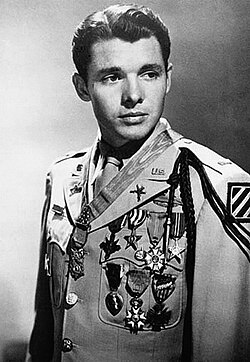
In 1945, World War II: Audie Murphy in action that will later win him the Medal of Honor.
“The Germans scored a direct hit on an M10 tank destroyer, setting it alight, forcing the crew to abandon it. Murphy ordered his men to retreat to positions in the woods, remaining alone at his post, shooting his M1 carbine and directing artillery fire via his field radio while the Germans aimed fire directly at his position. Murphy mounted the abandoned, burning tank destroyer and began firing its .50 caliber machine gun at the advancing Germans, killing a squad crawling through a ditch towards him. For an hour, Murphy stood on the flaming tank destroyer returning German fire from foot soldiers and advancing tanks, killing or wounding 50 Germans. He sustained a leg wound during his stand, and stopped only after he ran out of ammunition. Murphy rejoined his men, disregarding his own injury, and led them back to repel the Germans. He insisted on remaining with his men while his wounds were treated.”
For his actions that day, he was awarded the Medal of Honor.
In 1949, The Hale telescope at Palomar Observatory sees first light under the direction of Edwin Hubble, becoming the largest aperture optical telescope (until BTA-6 is built in 1976).
In 1950, The Constitution of India comes into force, forming a republic. Rajendra Prasad is sworn in as its first President of India. Observed as Republic Day in India.
In 1952, Black Saturday in Egypt: rioters burn Cairo‘s central business district, targeting British and upper-class Egyptian businesses.
In 1958, Japanese ferry Nankai Maru capsizes off southern Awaji Island, Japan, 167 killed.
In 1960, Danny Heater sets a worldwide high school basketball scoring record when he records 135 points for Burnsville High School (West Virginia)
In 1961, John F. Kennedy appoints Janet G. Travell to be his physician. This is the first time a woman holds the appointment of Physician to the President.
In 1962, Ranger program: Ranger 3 is launched to study the moon. The space probe later misses the moon by 22,000 miles (35,400 km).
In 1965, Hindi becomes the official language of India.
In 1966, The Beaumont Children go missing from Glenelg Beach near Adelaide, South Australia.
In 1978, The Great Blizzard of 1978, a rare severe blizzard with the lowest non-tropical atmospheric pressure ever recorded in the US until October 2010, strikes the Ohio – Great Lakes region with heavy snow and winds up to 100 mph (161 km/h).
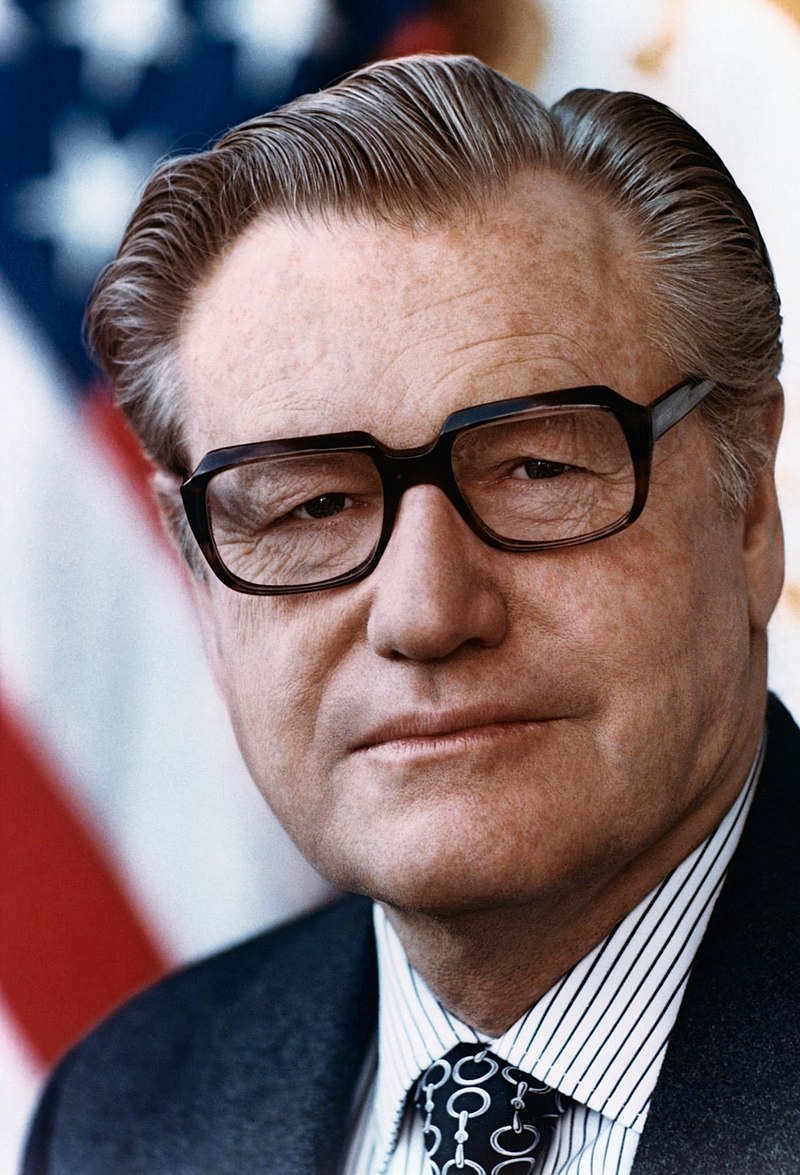
In 1979, Nelson Rockefeller, American politician, 41st Vice President of the United States (b. 1908) died. He was an American businessman, philanthropist, public servant, and politician. He served as the 41st Vice President of the United States (1974–1977) under President Gerald Ford, and as the 49th Governor of New York (1959–1973). He also served in the administrations of Presidents Franklin Roosevelt, Harry Truman and Dwight Eisenhower in a variety of positions. A member of the wealthy Rockefeller family, he was also a noted art collector. Rockefeller, a Republican, was politically liberal, progressive, or moderate. In his time, liberals in the Republican Party were called “Rockefeller Republicans.” As Governor of New York from 1959 to 1973 his achievements included the expansion of the State University of New York, efforts to protect the environment, the building of the Governor Nelson A. Rockefeller Empire State Plaza in Albany, increased facilities and personnel for medical care, and creation of the New York State Council on the Arts.
In 1980, Israel and Egypt establish diplomatic relations.

In 1983, Bear Bryant, American football player and coach (b. 1913) died. He was an American college football player and coach. He was best known as the longtime head coach of the University of Alabama football team. During his 25-year tenure as Alabama’s head coach, he amassed six national championships and thirteen conference championships. Upon his retirement in 1982, he held the record for most wins as head coach in collegiate football history with 323 wins. At the University of Alabama, the Paul W. Bryant Museum, Paul W. Bryant Hall, Paul W. Bryant Drive and Bryant–Denny Stadium are all named in his honor. He was also known for his trademark black and white houndstooth or gingham hat, deep voice, casually leaning up against the goal post during pre-game warmups, and frequently holding his rolled-up game plan while on the sidelines. Before arriving at Alabama, Bryant was head football coach at the University of Maryland, the University of Kentucky, and Texas A&M University. Of the schools he coached, Maryland is the only one not currently a member of the Southeastern Conference. Bryant accepted a scholarship to play for the University of Alabama in 1931. Since he elected to leave high school before completing his diploma, Bryant had to enroll in a Tuscaloosa high school to finish his education during the fall semester while he practiced with the college team. Bryant played end for the Crimson Tide and was a participant on the school’s 1934 National Championship team. Bryant was the self-described “other end” during his playing years with the team, playing opposite the big star, Don Hutson, who later became an NFL Hall-of-Famer. Bryant himself was second team All-SEC in 1934, and was third team all conference in both 1933 and 1935. Bryant played with a partially broken leg in a 1935 game against Tennessee. Bryant pledged the Sigma Nu social fraternity, and as a senior, he married Mary Harmon.
After graduating in 1936, Bryant took a coaching job at Union University in Jackson, Tennessee, but he left that position when offered an assistant coaching position under Frank Thomas at the University of Alabama. Over the next four years, the team compiled a 29–5–3 record. In 1940 he left Alabama to become an assistant at Vanderbilt University under Henry Russell Sanders. After the 1941 season, Bryant was offered the head coaching job at the University of Arkansas. However, following the bombing of Pearl Harbor, Bryant joined the United States Navy. In 1942 he served as an assistant coach with the Georgia Pre-Flight Skycrackers.
Bryant then served off North Africa, seeing no combat action. However, his ship, the converted liner USAT Uruguay was rammed by an oil tanker near Bermuda and ordered to be abandoned. Bryant disobeyed the order, saving the lives of his men. Allen Barra claims that two hundred others died in the collision.
He was later granted an honorable discharge to train recruits and coach the North Carolina Navy Pre-Flight football team. One of the players he coached for the Navy was the future Pro Football Hall of Fame quarterback Otto Graham. While in the Navy, Bryant attained the rank of Lieutenant Commander.
In 1986, The Ugandan government of Tito Okello is overthrown by the National Resistance Army, led by Yoweri Museveni.
In 1991, Mohamed Siad Barre is removed from power in Somalia, ending centralized government, and is succeeded by Ali Mahdi.
In 1992, Boris Yeltsin announces that Russia will stop targeting United States cities with nuclear weapons.
In 1998, Lewinsky scandal: On American television, U.S. President Bill Clinton denies having had “sexual relations” with former White House intern Monica Lewinsky.

In 2000, Don Budge, American tennis player and coach (b. 1915) dies. He was an American tennis champion who was a World No. 1 player for five years, first as an amateur and then as a professional. He is most famous as the first player, male or female, and only American male to win in a single year the four tournaments that comprise the Grand Slam of tennis and second male player to win all four Grand Slams in his career after Fred Perry, and is still the youngest to achieve that feat. He won 10 majors, of which six were Grand Slams (consecutively, male record) and four Pro Slams, the latter achieved on three different surfaces. Budge was considered to have the best backhand in the history of tennis, at least until the emergence of Ken Rosewall in the 1950s and 1960s.
In 2001, An earthquake hits Gujarat, India, causing more than 20,000 deaths.
In 2004, President Hamid Karzai signs the new constitution of Afghanistan.
In 2004, A whale explodes in the town of Tainan, Taiwan. A build-up of gas in the decomposing sperm whale is suspected of causing the explosion.
In 2005, Glendale train crash: Two trains derail killing 11 and injuring 200 in Glendale, California, near Los Angeles.
In 2007,
Congress failed this week to override President Bush’s veto of the attempted expansion of the State Children’s Health Insurance Program (SCHIP). However, liberals have found new clarity of vision in trying to work Medicaid expansion into any economic stimulus. A recession strikes liberals as a sure-fire reason for the government to relieve parents of their responsibility for their children’s health care.
The Senate re-approved the defense-authorization bill this week, after President Bush vetoed it over Christmas break because of the provision allowing Iraq to be held legally liable for actions perpetrated by Saddam Hussein’s regime. The bill was amended to remove the provision. The House passed the revised version last week, and President Bush is expected to sign it.
The Senate is also considering legislation that would do two things: expand government healthcare on Indian reservations and also expand the Davis Bacon Act, which requires prevailing wages and benefits be paid to contractors brought in for the work of building new facilities on the reservations.
Rep. Eric Cantor (R-VA) introduced the Middle Class Jobs Protection Act (H.R. 4995), a significant part of which would reduce the top corporate tax rate from 35 percent to 25 percent.
Former presidential candidate Rep. Duncan Hunter (R-CA) reintroduced the Secure Fence Act Wednesday, which mandates construction of double-layered fencing along the U.S. /Mexico border within six months, something that the Homeland Security Department has been apparently loath to do. “Today, DHS has built approximately 75 miles of new fence along the border, of which only five miles is double-layered,” Hunter said. “The Secure Fence Act was clear in that it required double-layered fencing, separated by a road for Border Patrol vehicles, extending over 700 miles of land border.”
In 2007, Former Congressman and Former Senatorial and Mayoral Candidate Bob Clement announced that he has formed a new lobbying firm and according to the Tennessean he said:
“Now, I’m focused on helping the private sector and local governments of this region maximize available resources on the state and federal and international level.”
Here is a translation of this statement from Clementspeak to Taxpayerspeak:
“Dear taxpayers, you have paid for my advanced degree in government influence peddling. I now intend to use that vast knowledge and network of fellow Republican and Democratic influence peddlers to use YOUR GOVERNMENT to enrich myself. I will use YOUR GOVERNMENT to funnel special favors and bundles of taxpayer cash to my clients and they will pay me big bucks. Is this a great country or what. Thank You and Good luck suckers!”
In 2009, Rioting breaks out in Antananarivo, Madagascar, sparking a political crisis that will result in the replacement of President Marc Ravalomanana with Andry Rajoelina.
In 2015, A giant snow storm hits much of the Northeastern United States.
In 2015, An aircraft crashes at Los Llanos Air Base in Albacete, Spain, killing 11 people and injuring 21 others.
In 2015, Libby Lane becomes the first woman to be ordained a bishop of the Church of England.
In 2020, A Sikorsky S-76B flying from John Wayne Airport to Camarillo Airport crashes in Calabasas, 30 miles west of Los Angeles, killing all nine people on board, including former five-time NBA champion Kobe Bryant and his daughter Gianna Bryant.
In 2021, Protesters and farmers storm the Red Fort near Delhi, clashing with police. One protester is killed and more than 80 police officers are injured.

